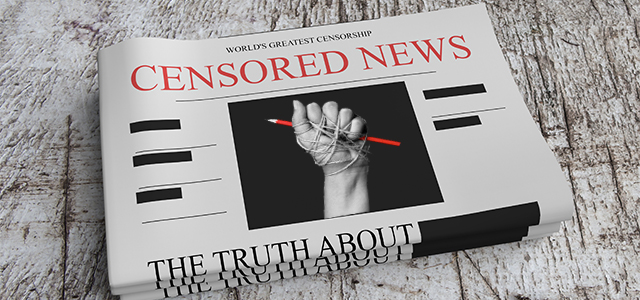Pulitzer Prize winning journalist, Ronan Farrow, urged people to protect free press and for journalists to continue to fight for truth around the world at Sydney’s Antidote festival on 1 September.
Antidote brought together key thinkers and activists for a series of talks at the Sydney Opera House to explore ideas, action and change.
Ronan Farrow was the first to break the story of the sexual abuse allegations against Hollywood producer Harvey Weinstein.
The series of articles that were published in the New Yorker, prompted the #MeToo movement, empowering women and men to tell the stories of sexual harassment and abuse.
“We’re grappling around the world and as a culture, with our collective failure to create spaces that treat men and women equally and treat everyone with dignity,” said Farrow in his opening address.
“It is in no small part that due to those rebellious, adversary journalists…that we are seeing long held secrets about the abuse of power dragged out into the spotlight kicking and screaming.
“And we’re hearing long marginalised voices including those of sexual abuse survivors.”
Farrow spoke of the difficulties of breaking the Weinstein story, of being road blocked by people in the media and the intimidation from Weinstein, where the producer had Farrow followed and threatened by lawyers.
At the time Farrow, was employed by NBC News and had been working on the story for a year. A former producer for Farrow alleges that NBC tried to stop Farrow from breaking the story, which ultimately prompted Farrow to take the story to The New Yorker. Circumstances he will detail in his upcoming book Catch and Kill.
NBC denies that it blocked Ronan Farrow’s Weinstein expose https://t.co/Vt58pwRFQm pic.twitter.com/61sdHdAds3
— Variety (@Variety) August 31, 2018
This experience, as well as the treatment of the press abroad and in America, with the rise of authoritarian rule and rhetoric of fake news, Farrow said it, “shows that our right to the truth is fragile.”
“Freedom of press is not automatic, from Pakistan, to Belaruse, to Bahrain, people in our profession die every day fighting for the truth. They are imprisoned everyday fighting for the truth.”
“Free press is a privilege and it needs to be constantly defended and protected,” said Farrow.
Farrow went on to say it was a matter of going against the culture of mistrust, sensationalism and fear of backlash.
“Constantly in our work as journalists we face the incentive to take the easy, the friendly path, and the path with least resistance.
“It is only by choosing over and over again every day to take the hard and adversarial path that we stand up for this precious institution that is so important to all of us all around the world,” said Farrow, who was also candid about being scared in the process of pulling the story together, doubting whether it was the right thing or if the story would make an impact.
“I didn’t stop because I knew that I would never be able to live with myself for one thing, if I didn’t honour the risks the extraordinary women had taken.
“But also less nobly I didn’t stop because I really had gambled too much and swung too wide and there was nowhere out but through.”
The Q&A session was led by Guardian Australia editor, Lenore Taylor, and was at times underwhelming compared to the opening address, with many deflected questions and plugs for Farrow’s new book. Smart marketing.
The Antidote festival also included talks from American whistle-blower Chelsea Manning, who appeared via video link due to being denied entry into Australia, Black Panther writer Ta-Nehisi Coates, and architect Marwa Al-Sabouni.
Melissa Stewart













